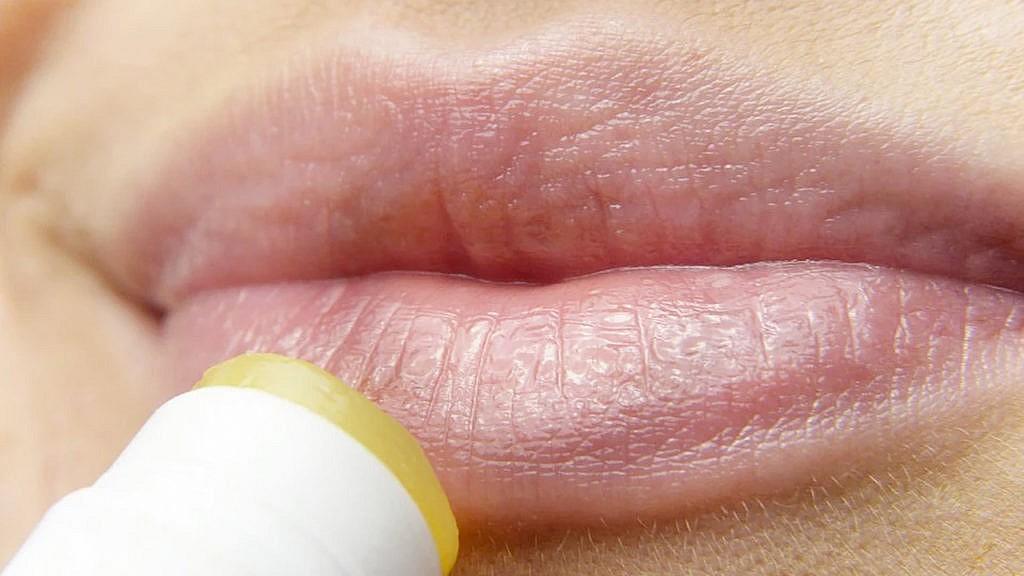
Öko-Test examined around 20 lip care products that promise additional UV protection. A handful are "good" or "very good," while others fail for a variety of reasons. Natural cosmetics have to contend with other problems than conventional products.
Anyone who likes to go skiing in good weather in winter knows the problem: In the mountains, the skin has to be protected from the sun, while the low temperatures attack the skin at the same time. A lip care stick with additional UV protection seems to kill two birds with one stone in order to protect the sensitive skin areas - especially since the lips have hardly any natural protection against UV rays and therefore get sunburned particularly easily.
Lip care with UV protection: problems from titanium dioxide to mineral oil
In order to find out which substances are smeared on the lips with such UV pens, the magazine Öko-Test has had around 20 care sticks (with a sun protection factor between 20 and 50+) examined and evaluated in the laboratory. The verdict was extremely mixed – all six grades from “very good” to “unsatisfactory” were represented.
Although four lip care sticks with UV protection are "very good" and therefore particularly recommended, the majority of the products have problems, usually even several at the same time. Bitter: This time, the articles with the natural cosmetics seal are no more recommendable than those without.
Buy Öko-Test lip care with UV protection as an e-paper
The reason: every product that promises UV protection requires appropriate filter materials. In order to avoid chemical UV filters, natural cosmetics brands have almost always used the mineral substances titanium dioxide and zinc oxide in recent years, some of which absorb harmful UV radiation and some reflect it. The substances can therefore also be found in almost all organic sunscreens with a natural cosmetics certificate.
Titanium Dioxide trending down
Unfortunately, titanium dioxide has lost a lot of its good reputation. The reason: The European Food Safety Agency (EFSA) decided this year that titanium dioxide may no longer be contained in food because the substance may be mutagenic if inhaled or ingested. There have been indications of this for a long time.

Öko-Test now argues that you always swallow a small part of lip (care) sticks when you use them and that titanium dioxide therefore has no place in lip cosmetics. Points were deducted from the lip gloss test in the previous issue of Öko-Test.
Buy Öko-Test lip care with UV protection as an e-paper
We at Utopia find it understandable that no natural cosmetics stick scores better than "satisfactory" in the current test (e.g. Alverde Sun Lip Care SPF 20), even though we fundamentally support products from natural cosmetics manufacturers. Natural cosmetics contain - very often, but not always - less questionable substances.
Lip care: These are the test winners
All of this has the consequence that the test winners for the UV lip care sticks this time come from conventional cosmetics: "Very good", for example, was the Annemarie Börlind Sun Care Lip Stick 20, which at around 5 euros is also one of the most expensive Pens in the test (can be bought** at Galeria or Douglas, among others).
But even the test losers do not have a natural cosmetics seal:
Buy Öko-Test lip care with UV protection as an e-paper
Other problem substances that the laboratory found in some care sticks were PEG (derivatives), paraffins, aromatic mineral oil hydrocarbons (MOAH), benzophenone, tartrazine or butylated hydroxytoluene, each of which has been criticized for various reasons.
Lip care test: our conclusion
All in all, there is a much more mixed picture in winter 2021/22 than three years ago, when Öko-Test last looked at UV care sticks. At that time, natural cosmetics were still "very good" across the board - but titanium dioxide was not an issue either. About 12 months ago, when Öko-Test was looking at lip care without UV protection for a change, the natural cosmetics scored particularly well.
The current eco-test for lip care should now motivate many manufacturers to revise their sun protection products. Some natural cosmetics producers will probably switch from titanium dioxide to zinc oxide as far as UV protection is concerned, although the substance has other advantages and disadvantages.
All details on the current test can be found in Öko-Test Magazin 01/2022 and online at www.ökotest.de.
Read more on Utopia.de: ** Links to sources of supply marked with ** or underlined in orange are partly partner links: If you buy here, you actively support Utopia.de, because we will then receive a small part of the proceeds from the sale. More info.
Do you like this post?
421Thank you for your vote!






